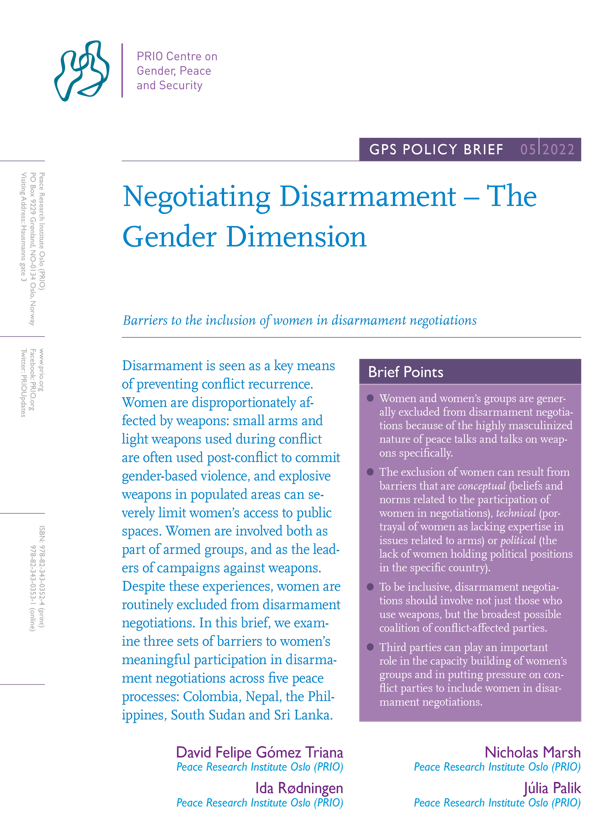Disarmament is seen as a key means of preventing conflict recurrence. Women are disproportionately affected by weapons: small arms and light weapons used during conflict are often used post-conflict to commit gender-based violence, and explosive weapons in populated areas can severely limit women’s access to public spaces. Women are involved both as part of armed groups, and as the leaders of campaigns against weapons. Despite these experiences, women are routinely excluded from disarmament negotiations. In this brief, we examine three sets of barriers to women’s meaningful participation in disarmament negotiations across five peace processes: Colombia, Nepal, the Philippines, South Sudan and Sri Lanka.
Gómez Triana, David Felipe; Ida Rødningen; Nicholas Marsh & Júlia Palik (2022) Negotiating Disarmament – The Gender Dimension: Barriers to the Inclusion of Women in Disarmament Negotiations, GPS Policy Brief, 5. Oslo: PRIO.











